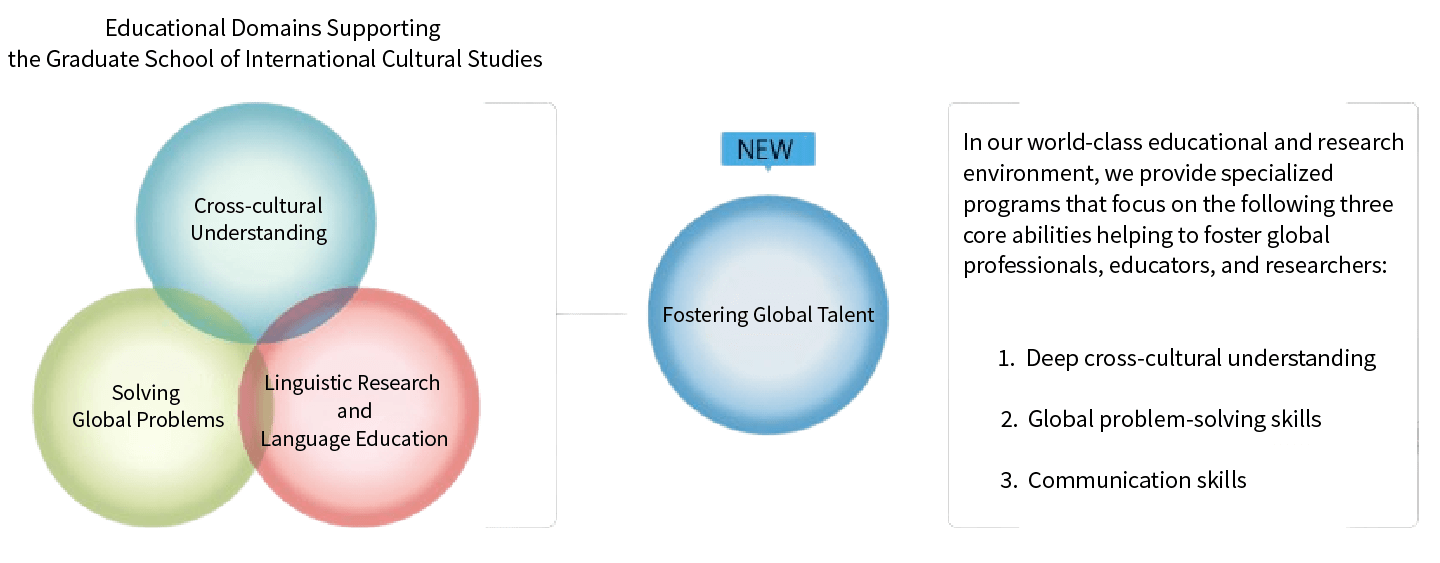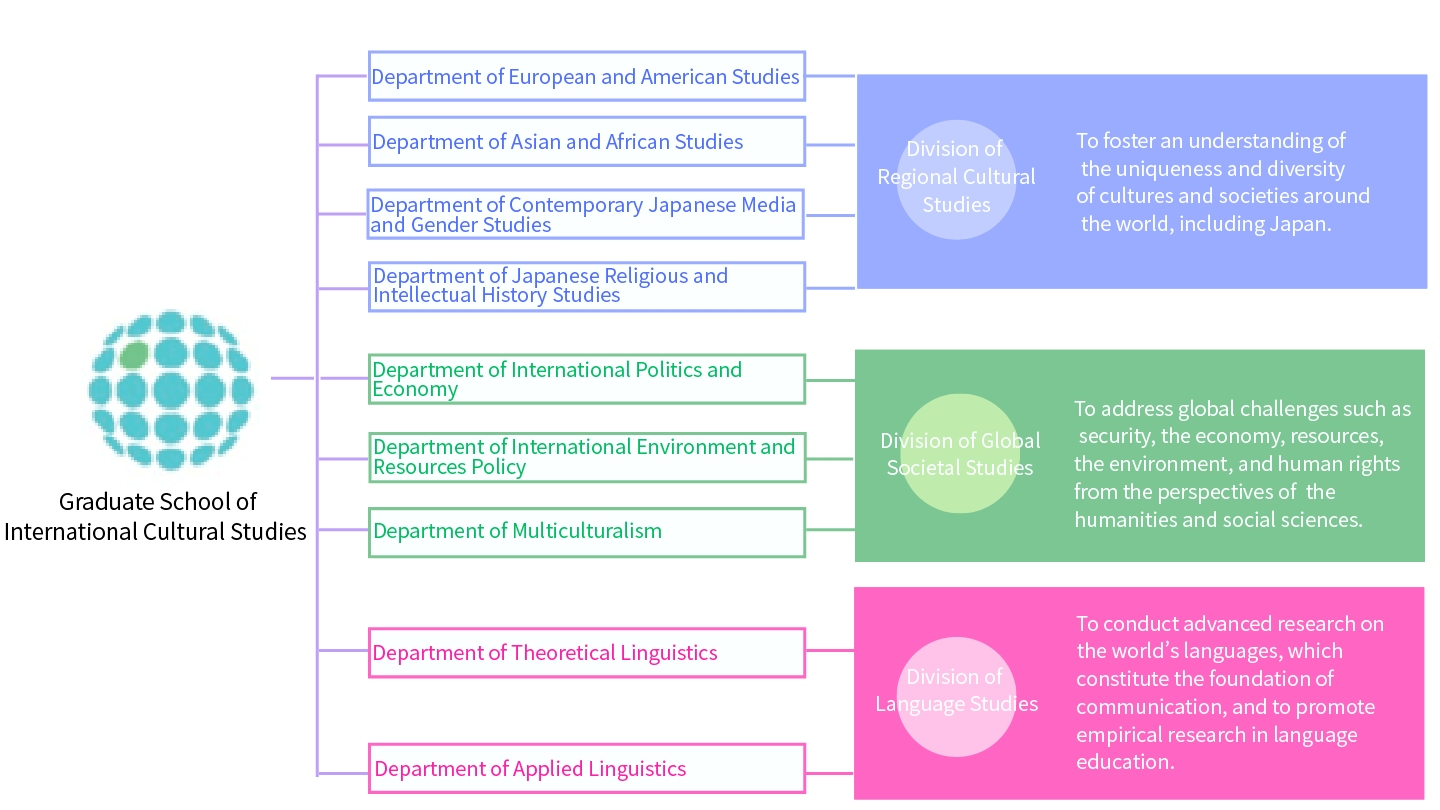
Organization
What is the Graduate School of International Cultural Studies
Since its establishment in 1993, the Graduate School of International Cultural Studies has conducted education and research in 3 research areas: International Area Studies (6 departments), International Cultural Interaction Studies (7 departments), and International Cultural Languages (5 departments).
In order to respond appropriately to the recent rapid progress of globalization, the diversification of educational needs in society as a whole, and changes in international research trends, and to implement more advanced and practical educational programs, in April 2015, we restructured the research organization from 3 research areas into one single integrated research domain, and reduced 18 departments to 8 departments. This reform aims to promote more cutting-edge research and to provide educational programs unique to the Graduate School.
In April 2024, we reorganized our research structure into 9 departments in order to respond to the further diversification of international research trends. These 9 departments are grouped into 3 Research Areas, which serve as educational program units where multiple departments are organically linked to foster advanced knowledge and abilities required to play an active role in global society. Each Research Area embodies one of the three pillars of our educational objectives:
- Deep cross-cultural understanding
- Global problem-solving skills
- Communication skills
These new 3 Research Areas are more closely and flexibly integrated than the previous 3 divisions and now serve as the pillars supporting the education of International Cultural Studies.

Affiliated Research Center
Research Center for Language, Brain and Cognition
For a long time, what goes on in the brain when a person tries to speak or understand a word was a mystery. In the past 15 years or so, it has become possible to visualize brain activity through the application of innovative technologies such as fMRI (Functional Nuclear Magnetic Resonance Imaging). This has opened the way for interdisciplinary research in fields related to “language” that transcends the boundaries of humanities and sciences, such as linguistics, psychology, medicine, and information processing.
The Center for Integrated Research on Language, Brain and Cognition is led by researchers in language science at Tohoku University's Graduate School of International Cultural Studies, in collaboration with researchers in linguistics, psychology, and medicine at the Graduate Schools of Information Sciences, Medicine, and Literature, to explore “language in the brain”.
International Joint Graduate School
Tohoku University has established international joint graduate school programs in fields that can lead the world by leveraging the university's strengths, and in fields that will become important in the future and contribute to human development. The program brings together the wisdom of Tohoku University, transcending departmental boundaries, and implements joint education in strong cooperation with leading overseas universities. The Graduate School of International Cultural Studies participates in two programs: the “Global Joint Graduate School of Disaster Science and Safety Studies (GP-RSS)” and the “Global Joint Graduate School of Japanese Studies (GPJS)”.
International Joint Graduate Program in Resilience and Safety Studies
The GP-RSS will provide practical international education in a wide range of fields from academia to the field of disaster science and safety by assigning world-class faculty members who have achieved results in this field, inviting top-level overseas researchers, and actively conducting research and student exchanges with overseas partner educational and research institutions. The program provides practical international education to cultivate highly specialized and internationally active human resources in a wide range of fields, from academia to the field.
International Graduate Program in Japanese Studies
In AY2018, the International Joint Graduate School of Japanese Studies, an integrated master's and doctoral joint graduate degree program in which the Graduate School and all Tohoku University humanities and social sciences departments participate, was launched. By building a platform for multidisciplinary and creative Japanese studies from the perspectives of “representation,” “capital,” and “empathy” in collaboration with overseas universities, we aim to create a new Japanese studies by transmitting “Japanese studies from the perspective of Japan” to the world and absorbing “Japanese studies from the perspective of the world” into Japan.

